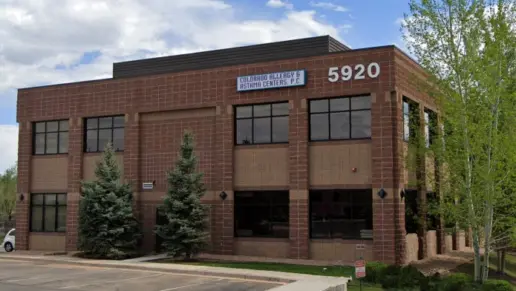Out of the blue, I found myself looking forward to the next session every time. Staff members are compassionate, friendly, helpful, and knowledgeable, no words for the love I felt there
About Life Recovery Center
The Life Recovery Center is a CARF accredited outpatient facility in Denver, Colorado dedicated to helping adults and adolescents overcome substance use disorders including alcohol addiction and opioid addiction. They are also able to help those with co occurring mental health conditions like depression or anxiety. The center accepts Medicaid, military insurance, private insurance and self pay to ensure care is accessible to all.
Weekly Outpatient Treatment
I like that they use a compassionate client centered approach. This approach allows for flexible programs tailored to support recovery while allowing you to maintain your daily responsibilities.
The center provides Level I outpatient and Level II.1 intensive outpatient programs (IOP). These programs are ideal for those transitioning from inpatient care or needing structured support. IOP includes group and individual therapy that spans typically nine to 15 hours weekly.
Gender and Age Specific Programs
They use evidence based therapies like cognitive behavioral therapy, dialectical behavior therapy, trauma related counseling and motivational interviewing. Specialized programs include gender specific care for men and women which addresses the unique challenges both genders experience.
Teens will also be able to receive age appropriate treatment that tackles adolescent specific issues. The center does not offer medication assisted treatment (MAT) for opioid addiction but focuses on counseling and relapse prevention strategies that include the Matrix Model and 12 step facilitation.
Additional Services To Support Sobriety
Additional services include family and couples counseling to rebuild relationships, anger management and community reinforcement to support sobriety. Clients praise the supportive therapists but some have reported inconsistent staff interactions.
Latest Reviews
Rehab Score
Accepted Insurance

Other Forms of Payment
Self-pay involves paying for treatment out of your own pocket. You can use savings or credit, get a personal loan, or receive help from family and friends to fund your treatment. If you don't have insurance or your insurance plan doesn't cover a specific program, self-pay can help ensure you still get the care you need.
Addiction Treatments
Levels of Care
 Outpatient
Outpatient
 Intensive Outpatient
Intensive Outpatient
Treatments
The goal of treatment for alcoholism is abstinence. Those with poor social support, poor motivation, or psychiatric disorders tend to relapse within a few years of treatment. For these people, success is measured by longer periods of abstinence, reduced use of alcohol, better health, and improved social functioning. Recovery and Maintenance are usually based on 12 step programs and AA meetings.
Professional services are often necessary to recover from addiction. Drug rehab in Colorado provides the expert services needed to address the complex issues of addiction and help individuals start their recovery journey.
Many of those suffering from addiction also suffer from mental or emotional illnesses like schizophrenia, bipolar disorder, depression, or anxiety disorders. Rehab and other substance abuse facilities treating those with a dual diagnosis or co-occurring disorder administer psychiatric treatment to address the person's mental health issue in addition to drug and alcohol rehabilitation.
Opioid rehabs specialize in supporting those recovering from opioid addiction. They treat those suffering from addiction to illegal opioids like heroin, as well as prescription drugs like oxycodone. These centers typically combine both physical as well as mental and emotional support to help stop addiction. Physical support often includes medical detox and subsequent medical support (including medication), and mental support includes in-depth therapy to address the underlying causes of addiction.
Substance rehabs focus on helping individuals recover from substance abuse, including alcohol and drug addiction (both illegal and prescription drugs). They often include the opportunity to engage in both individual as well as group therapy.
Programs

Adult Program

Young Adult Program
Clinical Services
Group therapy is any therapeutic work that happens in a group (not one-on-one). There are a number of different group therapy modalities, including support groups, experiential therapy, psycho-education, and more. Group therapy involves treatment as well as processing interaction between group members.
Trauma therapy addresses traumatic incidents from a client's past that are likely affecting their present-day experience. Trauma is often one of the primary triggers and potential causes of addiction, and can stem from child sexual abuse, domestic violence, having a parent with a mental illness, losing one or both parents at a young age, teenage or adult sexual assault, or any number of other factors. The purpose of trauma therapy is to allow a patient to process trauma and move through and past it, with the help of trained and compassionate mental health professionals.
Contact Information
11658 North Huron street
Suite 400
Denver, CO 80234


